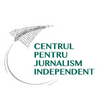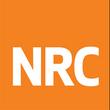Organizații vizate:
Anunțuri de Angajare
- Detalii
- Categorie: Angajări
UNDP Moldova: Programme Manager (short-term) - Addressing the impacts of energy crisis and initiating solutions toward energy security and addressing energy poverty Programme/FPI (EU-funded)
Informațiile prezentate în articolul de mai jos pot să nu mai fie actuale sau să nu mai reflecte activitățile și programele curente. Anunțul este păstrat în arhivă pentru a asigura transparența și accesul public la informațiile despre inițiativele și proiectele implementate anterior.
Background
Starting with October 2021, Moldova is facing a significant increase of gas prices as a consequence both of very tight global energy markets and a recently amended contract with Gazprom Moldova gas supplier. During the winter season 2021-2022, Moldova purchased its gas at prices about three or four times higher than in previous years which represented about $770/1000 cubic meters in October, $450/1000 cubic meters in November and December and $650/1000 cubic meters in January 2022. The prices are highly dependent of international gas market fluctuations which puts Moldovan Government in the situation to quickly react in case of unforeseen excessive price increases. This has put significant pressures on Moldova’s public finances and on the ability of the most vulnerable citizens to afford gas throughout the winter. The situation is becoming more complex as the Gazprom applies a rigid approach in terms of contractual deadlines for payments of advances, which has not been the case ever before.
In response to this energy crisis, the Government of Moldova introduced a State of Emergency on October 22, 2021 and January 20, 2022 and has prepared an urgent response to strengthen the social protection system’s ability to respond to increased energy tariffs. The Moldovan Government response is to ensure compensations measures for heating of all population in the proportion of 67% (from tariff increase) in December 2021 to 80% in January 2022.
Given the increase of gas tariffs will lead to subsequent increases of the electricity prices, the entire national economy and population will be affected. In this circumstances, Moldovan Government is looking to diversifying gas and electricity supply, to strengthen its energy security and enabling a transparent, fully open and well-functioning energy market.
For a country in which nearly two thirds of the population lived on less than $10/day before the pandemic began, where the expenditure on food and energy absorbs the vast majority of vulnerable household incomes, and where the vulnerable households generate the lion’s share of its electricity from gas, the current energy price increase has already shown significant implications. Energy poverty is to deepen, particularly for the poor households that are having to face a three to four- fold increase in energy prices (for gas and electricity) during the 2021-2022 heating season and beyond.
Combined with the country’s aggravated context by the COVID-19 pandemic (5th COVID19 wave as the Omicron variant outbreaks) and on-going macroeconomic social distress, the energy shocks also pose major risks to the Government’s reform program, which seeks to strengthen Moldova’s alignment with European and global good governance practices and is central to Moldova’s hopes for achieving the SDGs. The current geopolitical situation brings additional urgency to pursue these actions.
The acute gas supply crisis in Moldova has also been subject of discussions within the Moldova-EU Association Council meeting on October 28, 2021. The EU and Moldova stressed the importance of resilience against any potential efforts by third parties to use energy as a geopolitical lever. The Association Council recalled the importance of continued energy market reform to strengthen competition and transparency in this sector. The EU has urged Moldova to ensure that the energy sector reform demonstrates full respect of the Energy Community acquis and is in line with the EU Third Energy Package. The EU side confirmed its support to the objective of Moldova to synchronize its electricity network with the Continental European Network (CEN), an important step towards the integration into the EU energy system and market.
The EU-UNDP Programme “Addressing the impacts of energy crisis and initiating solutions toward energy security and addressing energy poverty” aims, as an overall objective, to assist the Government of Moldova in tackling the current energy crisis and energy poverty, and addressing prioritized systemic elements in the energy sector to cope with potential future energy crisis. In partnership with EU, UNDP Moldova will therefore, support the Government of Moldova:
• To tackle the current energy crisis and energy poverty, and addressing prioritized systemic elements in the energy sector to cope with potential future energy crisis
• To support the Government of Moldova in building its capacities towards strengthening the national energy security, as well as in improving the legal and regulatory framework and operationalizing specific rapid large-scale interventions to tackle energy poverty and support most vulnerable and affected groups of population and businesses.
The Project duration is envisaged between 2022- 2023 with support from Foreign Policy Instrument (herewith FPI) of European Union.
Duties and Responsibilities
Under the guidance and direct supervision of the Climate Change, Environment and Energy Cluster Lead, the incumbent provides effective and efficient coordination of the “Addressing the impacts of energy crisis and initiating solutions toward energy security and addressing energy poverty” Project, through a range of actions contributing to the design, planning, management and monitoring of project activities. The Project Manager applies and promotes the principles of results-based management (RBM), as well as a client-oriented approach consistent with UNDP rules and regulations, as follows:
a) Ensuring effective content and operational management of the project;
b) Oversee day-to-day operations and implementation of project activities;
c) Exercise close monitoring of project activities and produce monitoring reports;
d) Ensure the timely and efficient delivery of Project outputs and products, as per the Project Document, leading to the achievement of expected results;
e) Develop Work Plan, periodic narrative progress and final reports and expenditures status reports and submit to the supervisor;
f) Ensure the implementation of the activities under the Project work plan according to indicators for achieving planned results, as well as the overall management of the Project in line with UNDP rules, regulations and procedures;
g) Support UNDP CO in effectively managing human resources pertaining to the Project, including staff, consultants and short-term experts; conduct periodic performance appraisals; build, lead and motivate a solid team of professionals;
h) Support the efficient management of the Project financial resources, including budgeting and budget revisions, as well as expenditure tracking and reporting;
i) Continuously record and maintain Project issues and risks and suggest mitigation measures;
j) Lead and coordinate the organization of meetings, workshops, conferences, trainings, study visits and related activities relevant to the implementation of the Project;
k) Maintain a continuous effective dialogue with the key stakeholders, central and local government authorities, other UN agencies and actors active in the sector, CSOs, partner organizations, international and national experts in the areas of the Project intervention in view of identifying synergies and avoiding overlapping of assistance;
l) Maintain a close collaboration with other related UNDP programmes to ensure synergies and complementarities;
m) Ensure high quality information and visibility of the programme activities to the mass media and stakeholders and support mechanisms for exchange of information, experience and lessons learned at the local, national, and as required at international levels;
n) Perform any other duties connected directly with the implementation and evaluation of the Project as required.
Institutional Arrangement:
The Programme Manager will work under the supervision of the Climate Change, Environment and Energy Cluster Lead and will ensure the provision of development services and products commensurate with the scope of the Project and assigned area of responsibility of the highest quality and standards to national and local counterparts and clients through applying HRBA and GE approaches. The Project Manager will coordinate the project team, consisting of up to 6 full time employees and part time consultants, as envisaged in project organizational chart.
The Programme Manager will work in close cooperation with the team in the Country Office (CO) for effective achievement of results, anticipating and contributing to resolving complex programme/project-related issues and information delivery. The incumbent is expected to exercise full compliance with UNDP programming, financial, procurement and administrative rules, regulations, policies and strategies, as well as implementation of the effective internal control systems.
Competencies
Core:
Achieve Results: LEVEL 3: Set and align challenging, achievable objectives for multiple projects, have lasting impact
Think Innovatively: LEVEL 3: Proactively mitigate potential risks, develop new ideas to solve complex problems
Learn Continuously: LEVEL 3: Create and act on opportunities to expand horizons, diversify experiences
Adapt with Agility: LEVEL 3: Proactively initiate and champion change, manage multiple competing demands
Act with Determination: LEVEL 3: Think beyond immediate task/barriers and take action to achieve greater results
Engage and Partner: LEVEL 3: Political savvy, navigate complex landscape, champion inter-agency collaboration
Enable Diversity and Inclusion: LEVEL 3: Appreciate benefits of diverse workforce and champion inclusivity
People Management: UNDP People Management Competencies can be found in the dedicated site.
Cross-Functional & Technical competencies:
Thematic Area Name Definition
Business Management: Results-based Management: Ability to manage programmes and projects with a focus at improved performance and demonstrable results
Business Management: Project Management: Ability to plan, organi]e, prioriti]e and control resources, procedures and protocols to achieve specific goals
Business Management: Risk Management: Ability to identify and organi]e action around mitigating and proactively managing risks
Business Management: Monitoring: Ability to provide managers and key stakeholders with regular feedback on the consistency or discrepancy between planned and actual activities and programme performance and results
Digital & Innovation: Agile' methodologies and practices: Ability to manage projects and processes through continuous iteration, learning and improvement.
Ability to manage a self-organising cross-functional teams, foster a team culture of curiosity and learning. Being nimble and being able to improvise and quickly adjust to unforeseen events or changes in conditions or context.
Digital & Innovation: Futures & foresight: Ability to look at information from the past and present, identify patterns and trends and use them to inform decision making with a long-term view. Being sensitive and able to scan horizons and pick up weak signals of change, explore their potential implications and assess their impact and urgency.
Using creativity and imagination to communicate insights in compelling and engaging ways to challenge current mental models; ability to develop scenarios, speculative designs to present future visions or by making it experiential. Being able to facilitate debate and discussion about possible futures; help people to feel comfortable with the discomfort of uncertainty.
Business Management: Results-based Management: Ability to manage programmes and projects with a focus at improved performance and demonstrable results
Digital & Innovation: Agile' methodologies and practices: Ability to manage projects and processes through continuous iteration, learning and improvement. Ability to manage a self organising cross-functional teams, foster a team culture of curiosity and learning. Being nimble and being able to improvise and quickly adjust to unforeseen events or changes in conditions or context.
Digital & Innovation: Futures & foresight: Ability to look at information from the past and present, identify patterns and trends and use them to inform decision making with a long-term view. Being sensitive and able to scan horizons and pick up weak signals of change, explore their potential implications and assess their impact and urgency. Using creativity and imagination to communicate insights in compelling and engaging ways to challenge current mental models; ability to develop scenarios, speculative designs to present future visions or by making it experiential. Being able to facilitate debate and discussion about possible futures; help people to feel comfortable with the discomfort of uncertainty.
Partnership management: EU Partnerships: Knowledge and understanding of EU strategies,
approached, processes and systems
Required Skills and Experience
Min. Education requirements:
• Master’s Degree in environmental studies, energy, engineering, business administration, economics or related areas.
• Bachelor’s Degree with additional two years of experience can be taken into consideration in lieu of Master`s degree.
Min. years of relevant work experience:
• At least 5 years (with Master’s Degree) or 7 years (with Bachelor’s Degree) of progressive working experience in the design, management and implementation of programmes and/or working in a relevant position to this post;
• At least 5 years (with Master’s Degree) or 7 years (with Bachelor’s Degree) of progressively responsible experience is required at the national or international level in areas related to energy;
• Experience in the usage of computers and office software packages (MS Word, Excel, etc) and advance knowledge of spreadsheet and database packages, experience in handling of web based management systems.
Required skills:
• Previous experience in development assistance or related work for a donor organization, development partners, UN Agencies.
• Extensive knowledge of the regional energy context.
• Prior experience with UNDP Project management and/or implementation will be considered an asset.
Required Language(s):
• Fluency in oral and written English, knowledge of Romanian and/or Russian is an advantage.
Professional Certificates:
• Additional training and certification in project management and/or business administration would be an advantage.
The following documents shall be required from the applicants:
Personal CV or P11, indicating all past positions held and their main underlying functions, their durations (month/year), the qualifications, as well as the contact details (email and telephone number) of the Candidate, and at least three (3) the most recent professional references of previous supervisors. References may also include peers.
A cover letter (maximum length: 1 page) indicating why the candidate considers him-/herself to be suitable for the position.
Managers may ask (ad hoc) for any other materials relevant to pre-assessing the relevance of their experience, such as reports, presentations, publications, campaigns or other materials.
Applications should be submitted on line and include fully completed Personal History Form (P11) or CV/resume.
Please note that only applicants who are short-listed will be contacted.
Vacancy End Date: 24 August 2022
To apply please address the link: https://bit.ly/3P0JWuv









